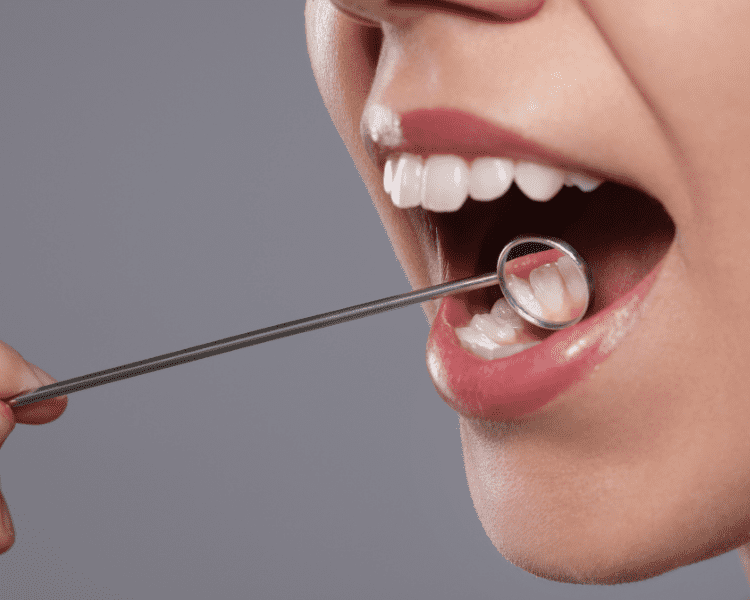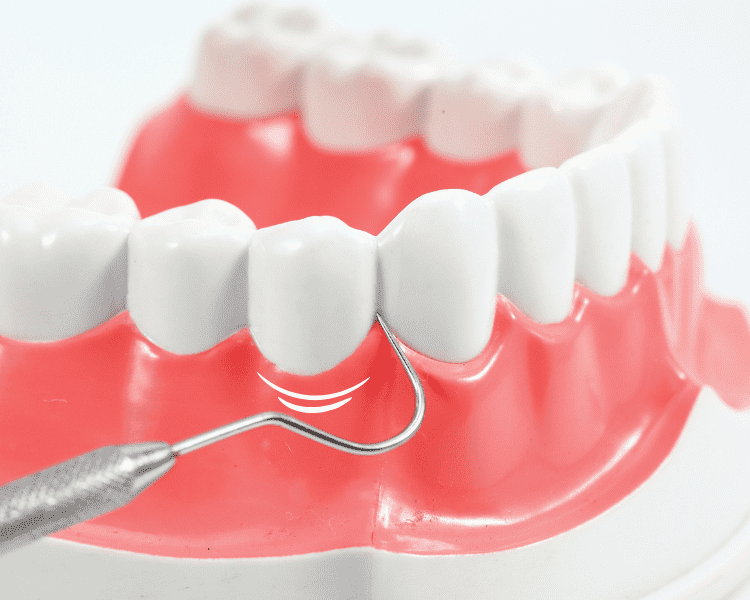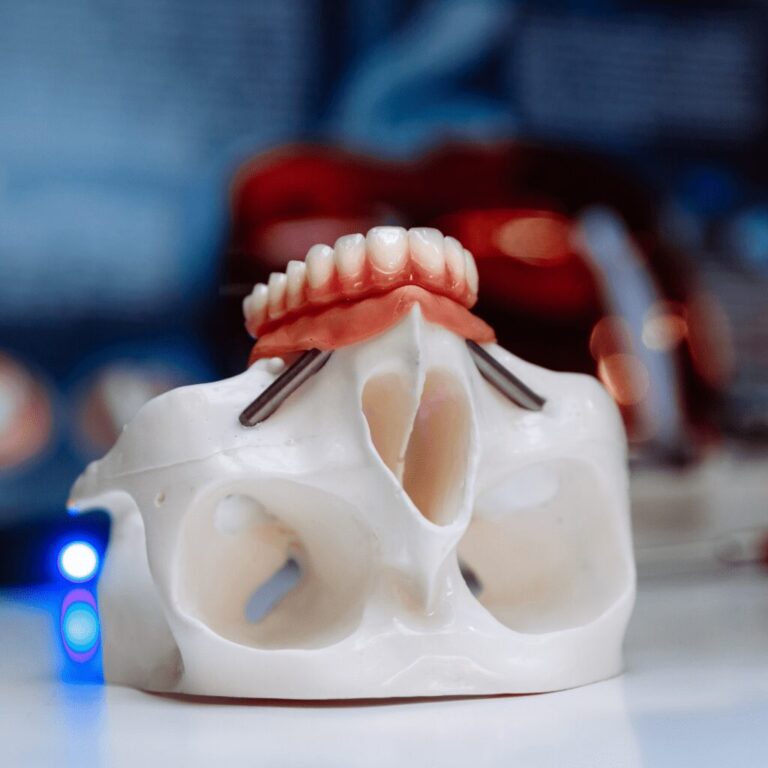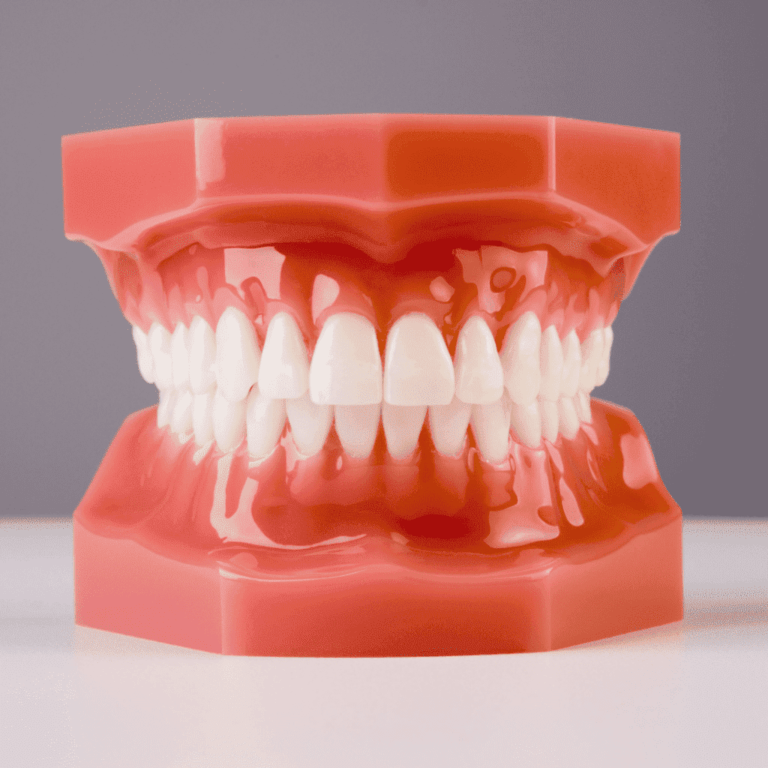Periodontal Disease (Gum Disease)
Gum disease, scientifically known as periodontal disease, is a prevalent oral health concern that affects countless individuals worldwide. In this comprehensive guide, we will explore the prevalence, periodontal disease symptoms, causes, risk factors, and various treatment options for gum disease.
What is Periodontal Diease (Gum Disease)?
Periodontal disease is an inflammatory condition that affects the tissues surrounding and supporting the teeth. This includes the gums, ligaments, and bone. It is caused by a buildup of bacteria and plaque on the teeth, leading to infection and damage to these supporting structures.
If left untreated, gum disease can lead to tooth loss and other serious oral health complications such as bone loss and dental abscesses.

Prevalence of Gum Disease
Gum disease is more common than you might think.
In fact, over 47% of adults in the United States suffer from some form of periodontal disease. Worldwide, it affects a significant portion of the population.
Gum disease is a widespread issue, with approximately 50% of adults over the age of 30 having some form of periodontal disease. This number increases to 70% in individuals over the age of 65.
The prevalence of gum disease is also higher in men compared to women and is more common in individuals with a lower socioeconomic status.
Understanding Periodontal Disease Stages and Symptoms
Gum disease can progress through different stages, each of which has various implications for oral health.
- Gingivitis – This is the earliest stage of gum disease and is characterized by inflammation of the gums. At this stage, symptoms may include redness, swelling, and bleeding when brushing or flossing. Related Post: Gingivitis Guide
- Early (Mild) Periodontitis – If gingivitis is left untreated, it can progress to early periodontitis. At this stage, the infection has spread to the ligaments and bone supporting the teeth. This can lead to gum recession, deep pockets between the teeth and gums, and potential tooth loss.
- Moderate Periodontitis – In this stage of gum disease, there is significant damage to the gums and supporting structures. Teeth may become loose, and there can be significant bone loss.
- Advanced Periodontitis – This is the most severe stage of gum disease, where the infection has caused irreparable damage to the supporting structures of the teeth. At this point, tooth loss is common, and more aggressive treatment measures may be necessary.
What Can Gum Disease Do to Your Teeth?
Gum disease can severely impact your dental health, and its effects can vary depending on the progression and severity of the disease.
In the early stages, known as gingivitis, gum disease may cause:
- Red, swollen, or tender gums
- Bleeding while brushing or flossing
- Receding gums, making your teeth appear longer
- Persistent bad breath or bad taste in the mouth

As the disease progresses to periodontitis, more severe symptoms may develop:
- Deep pockets forming between the teeth and gums
- Loose or shifting teeth
- Changes in the way your teeth fit together when you bite
- Pus between your teeth and gums
- Severe toothache, especially when chewing
If left untreated, gum disease can lead to tooth loss and other serious oral health complications:
- Destruction of gum tissue and underlying bone
- Abscesses in the gums and jawbone
- Tooth loss
- Increased risk of health complications including stroke, diabetes, and heart disease.
Causes of Gum Disease
The main cause of gum disease is poor oral hygiene, which allows bacteria in plaque and calculus (tartar) to remain on the teeth and infect the gums. However, there are other factors that can contribute to the severity of gum disease. These include:
- Smoking or Tobacco Use: This is one of the most significant risk factors associated with the development of gum disease. Moreover, smoking can lower the chances of successful treatment.
- Hormonal Changes in Girls/Women: These changes can make gums more sensitive and make it easier for gingivitis to develop.
- Diabetes: People with diabetes are at higher risk of developing infections, including gum disease.
- Other Illnesses and their Treatments: Diseases such as AIDS and its associated medications can also negatively affect the health of gums, as can treatments for cancer.
- Medications: There are hundreds of prescription and over the counter medications that can reduce the flow of saliva, which has a protective effect on the mouth. Without enough saliva, the mouth is vulnerable to infections such as gum disease.
- Genetic Susceptibility: Some people are more prone to severe gum disease than others because of their genetic makeup.
Diagnosis of Gum Disease
The diagnosis of gum disease involves a thorough dental examination, including a review of dental history, an oral examination, X-rays if needed, and potential referral to a periodontist.
Dental impressions may be taken to assess the fit of teeth and the impact on gum disease. This information helps determine the severity of gum disease and develop a treatment plan.
Periodontal Disease Treatments
Treatment of gum disease is essential not only for oral health but for overall health as well. Early intervention can help prevent the progression of the disease and its associated complications.
Professional Dental Cleaning:
In the initial stages, gum disease can often be managed with professional dental cleanings. Your dentist or dental hygienist will remove plaque and tartar buildup from above and below your gum line during these cleanings.
Improving oral hygiene habits, such as brushing and flossing regularly, can also help prevent gum disease from progressing.
Scaling and Root Planing:
If the disease has progressed, a deep-cleaning procedure known as scaling and root planing might be necessary.
Scaling involves scraping off tartar from above and below the gum line. In root planing, rough spots on the tooth root are made smooth to remove bacteria and provide a clean surface for gums to reattach to teeth.

Pocket Reduction Surgery (Flap Surgery):
Also known as flap surgery, pocket reduction surgery is a method used when the gum pockets have deepened, making it hard to clean the area effectively. During this procedure, the gum is lifted back so the tartar can be removed.
Post cleaning, the gum is then sutured back into place, reducing the pocket and making it easier to keep the area clean, thereby halting the progression of gum disease. This procedure is usually performed by a periodontist or oral surgeon and is an effective treatment for arresting advanced gum disease.

Lanap (Laser Gum Surgery):
Lanap is a minimally invasive treatment for gum disease that uses laser technology to remove bacteria and heal damaged tissue without cutting the gums. This procedure has been shown to be as effective as traditional surgery but with less pain and shorter recovery time.
Gum and Bone Grafting:
In cases where gum disease has caused significant damage to the bone and tissues supporting the teeth, grafting procedures may be necessary. Gum grafting helps replace lost gum tissue, while bone grafting can help regenerate damaged bone.
Guided Tissue Regeneration:
This is a procedure used to regenerate lost gum tissue and bone. A small piece of mesh-like material is placed between the tooth and gum tissue, preventing unwanted tissues from entering the area while allowing new cells to grow.
Frequently Asked Questions
By practicing good oral hygiene, including brushing and flossing regularly, quitting smoking or tobacco use, and seeing your dentist for regular check-ups and cleanings.
No, gum disease is not contagious in the traditional sense. However, the bacteria that cause gum disease can be transmitted through saliva, so it is important to practice good oral hygiene to prevent the spread of bacteria.
Yes, advanced gum disease has been linked to an increased risk of various health complications, including stroke, diabetes, and heart disease. Maintaining good oral hygiene and treating gum disease promptly can help reduce these risks.
Yes, dental implants are still an option for people with gum disease. However, it is essential to treat the gum disease first and maintain good oral hygiene habits to ensure the success of the implant. Your dentist or periodontist will evaluate your individual case and determine if dental implants are a viable treatment option for you.
Dental Implants with Bone Loss
It is recommended to see a dentist every six months for regular check-ups and cleanings. However, if you experience symptoms of gum disease, such as red or swollen gums, bleeding while brushing or flossing, or persistent bad breath, it is important to schedule an appointment with your dentist as soon as possible. Early diagnosis and treatment can help prevent the progression of gum disease.
Some common risk factors include smoking, poor oral hygiene, diabetes, hormonal changes in women, genetics, certain medications, and other health conditions that weaken the immune system.
Last Words from The More Clinics
Periodontal disease is a common yet preventable condition that can lead to serious consequences if left untreated. Maintaining good oral hygiene practices and seeking prompt treatment from your dentist can help prevent and manage gum disease effectively.
At The More Clinics, we are committed to helping you achieve and maintain a healthy smile. We hope this guide has been informative and valuable in your journey to better oral health. Remember, early detection and prevention are key in managing gum disease. If you have further questions or need professional assistance, don’t hesitate to contact us. Your oral health is our priority.
GET A FREE CONSULTATION!
Let’s Start Planning Your Treatment %100 Guarantee Results.

Written by The More Editorial Team and Medically Reviewed by Mehmet Can Kılınçaslan who specialized on Periodontology and Implantology





